Introduction
Netflix has different content libraries available depending on the country you are located in. For example, Netflix USA has over 6,000 titles available while smaller regions like Netflix Netherlands has under 3,000. This is due to the licensing agreements Netflix establishes with studios and distributors based on country.
Many people use VPNs (Virtual Private Networks) to change their Netflix country. By routing your internet traffic through another server in a different country, it tricks Netflix into thinking you are located there instead. However, using VPNs to access Netflix comes with a few drawbacks:
- Netflix is actively working to block most well-known VPN IP addresses and render them detected. When identified, viewers will get error messages instead of streamable content.
- Many free VPN services sell data about users and engage in unethical practices. Going with a paid VPN doesn’t completely eliminate privacy risks either.
- VPNs require running dedicated apps/extensions on each device which slow down internet speeds and can be difficult to set up properly across all hardware.
This is why alternative “geo-unblocking” solutions are worth considering instead for bypassing Netflix country restrictions legally and more seamlessly.

Using Smart DNS
One method gaining popularity is using Smart DNS proxy services to effortlessly change locations. Smart DNS works differently than VPNs by rerouting just your Netflix app traffic instead of all device internet connections.
How Does Smart DNS work?
When any device connects to Netflix, it first needs to convert the domain name (Netflix.com) into an IP address number sequence through DNS (Domain Name System) servers. These act like phone books that match domain names people type to the correct backend servers.
Smart DNS services operate private DNS servers that intercept your device’s domain name requests. When the DNS lookup for Netflix’s server address happens, Smart DNS identifies it and returns an IP located in another country instead of the actual U.S. IP. This routes only your Netflix connection through optimized international servers rather than your whole internet traffic.
Once your device gets the IP address belonging to the country you want, it opens the localized Netflix site. From Netflix’s perspective, your IP location appears as the country you want to access rather than your true location. No VPN required!
Pros of Smart DNS Over VPNs
There are a few advantages Smart DNS proxy services have over VPNs:
1. Superior streaming performance – There is no app or VPN client running that can slow down connections. By not routing ALL device traffic through intermediate servers, near-original internet speeds are maintained. Streaming qualityoutput is higher as a result.
2. Access across all devices – Smart DNS proxies only require changing network or individual device DNS server settings instead of installing apps. This makes setup easier across smartphones, media players, tablets, game consoles and many other unsupported VPN devices.
3. Does not get blocked by Netflix – VPN IP addresses are actively targeted and blocked via blacklists. Smart DNS IP addresses fly under the radar much more easily since only small amounts of traffic reach them. Outages are less likely.
4. Retains full internet functionality – Unlike VPN tunnels that disable or throttle certain types of traffic, Smart DNS allows full use of non-Netflix internet apps and services simultaneously without performance drops.
The main limitation is that Smart DNS works purely at the DNS lookup level rather than encrypting end-to-end traffic flows. Using VPNs are more recommended where complete traffic encryption is important. But for Netflix access specifically, Smart DNS serves the purpose smoothly.
Step-By-Step Setup Guide
The exact steps to configure Smart DNS settings for changing your Netflix region differs across devices and software. But the general process is:
1. Select and purchase a reputable Smart DNS service
The best Smart DNS providers for Netflix access with servers in over 190 countries include:
- SmartyDNS
- UnoTelly
- Unblock-US
After registering an account with one, they provide custom DNS server addresses.
2. Change the DNS server settings on your device/router
On a router: Manually enter the provided DNS IP addresses from your provider in place of the default DNS numbers under your router’s internet or DHCP settings page. This changes DNS lookups for all devices connected to use Smart DNS.
On an individual streaming device/computer:
Go into your network adapter settings (varies by OS and device) and set the DNS servers manually to your provider’s IP addresses instead of defaulting to the home router’s DNS server records.
3. Refresh DNS and test new settings
Flush your DNS cache/reload for the changes to take effect immediately:
- Windows – Open command prompt and type “ipconfig /flushdns”
- Mac OS – Open terminal and type “sudo killall -HUP mDNSResponder”
- IOS & Android – Turn your wifi Off and back On
Opening Netflix and checking their website URL after forcing the flush/renewal should display the new country specific site. Their library content when browsing now also matches this region indicating a successful change.
And that’s it! The process to start streaming Netflix content from other countries is straightforward using Smart DNS proxies. Changing locations only requires updating configurations rather than installing client VPN software.

Legality and Netflix’s Policies
When considering any method for accessing international Netflix libraries, an important question arises – is this legal? Netflix actively works to enforce geo-restrictions based on regions. So bypassing this goes against their policies.
Is it illegal then to stream restricted Netflix content?
- Currently there are no specific laws in most countries prohibiting consumers from circumventing Netflix geo-blocks for personal use. No legal precedent has declared cross-region streaming as direct copyright infringement either as long as individual accounts are paid for. Personal password sharing even across borders is generally not viewed as illegal file sharing.
- However, the terms of use on Netflix’s website clearly restrict bypassing location blocks to access country specific content. Doing so violates their policies.
- The area remains contentious – some major studios and license holders argue that geo-unblocking technically violates aspects of copyright treaties regarding territorial broadcasting rights. Certain copyright acts have gray areas around “rights of making available”. Educational, documentary and other public interest programming generally have fewer ownership constraints however.
In essence – accessing foreign Netflix content might not be outright illegal depending on jurisdiction and interpretation, but still contravenes Netflix’s acceptable use policies agreed to when creating accounts. Users undertake such actions at their own risk without guarantees against potential civil or criminal liability claims if pursued aggressively.
What action does Netflix take against region bypassing?
The most likely result Netflix deploys currently against suspected VPN/Smart DNS usage is blocking incoming IP addresses that seem to geo-hop across vastly different locations over short time spans.
Warnings may get displayed saying “You seem to be using an unblocker or proxy”, followed potentially by suspensions or terminations of subscriber accounts if the circumventing continues. Reactivating service may require stopping usage of VPNs/Smart DNS services.
Less likely outcomes? Lawsuits against individuals have not happened yet unlike the aggressive targeting of various piracy venues over the years. However the space remains legally uncertain. As more titles get licensed exclusively in certain markets, studios pressuring for harsher geo-evasion penalties can’t get ruled out either.
Weighing the personal risks against convenience and cost factors around accessing global Netflix content warrants consideration before attempting to bypass their regional access policies.

Other Alternatives
Do other options exist besides VPN and Smart DNS services for opening international Netflix regions? Yes, but they generally prove less effective:
Proxy Servers
Connecting through public proxy servers to mask IPs rarely works to fool Netflix. The well-known anonymity focused services get identified and blocked quickly. Attempting with unreliable proxies risks account lockouts. Performance also takes a hit trying this route.
Mirror Sites & Modified Apps
Unofficial clone sites and hacked Netflix apps inappropriately distribute copyrighted programming against terms of service. Besides legal risks, malware dangers abound. User experience is also poor.
Cross-Border SIM Cards
Theoretically activating a foreign cellular data plan with SIM card purchased overseas should display that country’s Netflix. But roaming charges get extremely expensive fast. Cell carriers might foil this approach too.
Moving Abroad
Physically relocating your residence to another market naturally allows you to subscribe directly to that geographic Netflix region. But the financial costs and life disruption utterly outweigh the convenience factor long term in most cases!
The alternatives above generally prove impractical or too risky for frequent Netflix geo-blocking bypass needs. Masking your location using properly configured Smart DNS or VPN services remains the only usable options currently.
Conclusion
In closing – accessing the wider selection of Netflix programming available internationally often motivates attempts to bypass geographic access restrictions imposed on their platform. Changing locations via inexpensive Smart DNS services enable smoothly overridding limitations legally placed on content availability between regions.
Carefully researching proper setup using reputable Smart DNS companies facilitates safely opening Netflix libraries abroad with minimal disruptions to picture quality or internet speeds. Practicing reasonable consumption of exclusively overseas licensed titles avoids potential civil headaches.
Combining flexible Smart DNS technology with discretion around usage volumes ultimately empowers broader access to Netflix’s rich diversity of foreign entertainment. Enthusiasts in strictly geo-fenced areas can expand boundaries imposed by their locality’s more limited offerings. Effortlessly exploring new genres and shows enhances user experience.
However lingering in gray areas around actively contravening clear platform policies bears remembering. Future legal precedents and copyright holder opinions could shift. Weighing personal risks and ethical factors around undermining territorial media rights factors into each user’s decision calculus.
Proceeding safely through employing only reliable products and moderate viewing practices allows pragmatically expanding Netflix scope. Streaming beyond borders can responsibly widen entertainment horizons.
Introduction
A virtual private network (VPN) is an encrypted connection over the internet that allows users to securely access a private network and share data remotely. VPNs work by creating a secure, encrypted tunnel for your data and online activity between your device and the VPN server. This protects your sensitive information and browsing data from being snooped on or modified over less-secured public Wi-Fi and cellular connections.
In today’s digital world, VPNs have become very important for protecting our privacy and sensitive information online. We routinely connect to public Wi-Fi hotspots where hackers could secretly access our devices. VPN encryption ensures that our data remains secure and private while traveling through these types of insecure networks. As more of our personal and professional lives happen online, VPNs provide essential protection.
However, like any security technology, VPNs have vulnerabilities that attackers could exploit to break into the encrypted tunnel and view or modify data. Understanding these vulnerabilities is key for protecting yourself while using a VPN.
Vulnerabilities in VPNs
While VPN services provide much greater privacy and security compared to unprotected web browsing, no method is completely foolproof. Intruders are constantly probing VPN infrastructure, encryption, and connected devices for weaknesses they can exploit to break into VPN connections.
Some examples of vulnerabilities that have affected VPN users in the past:
Unsecured VPN apps and software bugs: Flaws in VPN app code or accidental data leaks have allowed attackers to bypass VPN protections, view user activity, and collect sensitive data. Vulnerabilities have been found in both custom VPN software and third party apps like OpenVPN. Keeping all apps fully updated is key.
Weak encryption algorithms: Strong encryption like AES 256-bit is essential for securing VPN tunnels. Some providers have used outdated or insecure algorithms like Blowfish that are easier for hackers to crack. The encryption methods used by a VPN provider should be fully disclosed.
VPN protocol vulnerabilities: Differing protocols that underpin VPN technology (e.g. IKEv2, OpenVPN) have all faced vulnerabilities allowing attackers to decrypt and access data. Keeping desktop and mobile VPN apps updated with the latest protocols is important.
Insecure default settings: VPN apps don’t always ship with the most secure default settings. Attackers exploit these weaker default options to intercept traffic and data. Customizing settings for greater security is advised.
DNS, IPv6, and WebRTC leaks: VPN apps don’t always protect against all potential data leak risks by default. DNS requests, IPv6 traffic, or WebRTC data could get exposed beyond the VPN tunnel, allowing snooping on user activity/location. Using comprehensive leak protection is key.
The sheer variety of ways attackers have devised to pierce VPN security highlights why vigilance is necessary on behalf of both VPN providers and users.
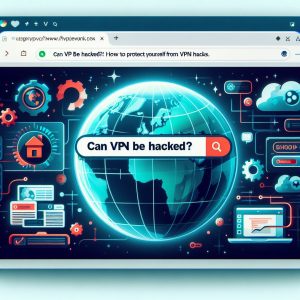
Factors Affecting VPN Security
The security of any VPN connection depends on a variety of factors related to user behavior, the system configurations involved, and the policies of the VPN service itself.
User Behavior
How VPN users behave plays a major role in determining vulnerability to attacks:
- Using public Wi-Fi networks without a VPN is extremely insecure as attackers can silently access devices and data on an unprotected hotspot. Always use VPN protection on open networks.
- Insecure site logins transmitted through the VPN tunnel (especially when using public networks) could allow attackers to steal credentials by intercepting data within the tunnel if unsuccessful MITM attacks occur. Avoid logging into sensitive accounts.
- Accidentally disabling the VPN connection while browsing can expose your true IP address and online activity. Ensure the VPN stays active at all times when in use.
- Committing passwords or confidential data to email or storage while connected could lead to compromise if the VPN is somehow breached. Remember the VPN tunnel alone does not provide 100% fullproof security.
- Reusing passwords across multiple accounts remains dangerous even when a VPN is used. Your other online accounts could be put at risk if a single site is compromised. Unique passwords for every account is recommended.
- Outdated devices, software and apps can allow attackers access to exploits that could circumvent VPN-level protections. Maintaining defenses at all levels is key.
VPN Provider Practices
The security assurances implemented by the VPN provider itself also greatly impact safety:
- Server infrastructure security is crucial for preventing unauthorized data access. VPN servers should be frequently evaluated for vulnerabilities and kept fully patched. End-to-end encryption should protect data even if servers are compromised.
- Strict no-logs policies prevent sensitive user data from being collected in the first place. VPN providers should not be recording browsing data, timestamps, IP addresses, or any user activity while the VPN is active.
- Strong encryption protocols like OpenVPN, IKEv2 and Wireguard provide the strongest defenses for creating secure VPN tunnels difficult for intruders to breach. Proprietary protocols could have hidden vulnerabilities.
- VPN server network diversity makes tracing activity back to a user’s true location/identity more difficult. More countries and locations the servers are based in, the better.
- Firewall and filter protections can prevent malicious traffic, geoIP leaks, IPv6 leaks, WebRTC leaks and other identifying data seepage while the VPN is active. All traffic should be forced through the encrypted tunnel exclusively.
- Updated VPN apps/software that address the latest vulnerabilities should be maintained across all user platforms. Fixed security issues can’t benefit users otherwise.
Paying close attention to the specific security practices and policies of a VPN provider is advised before establishing an account.
Encryption & Protocols
The encryption cipher strength and VPN protocols used when creating the secure tunnels between devices also impacts the resilience to hacking:
- AES 256-bit encryption is presently considered uncrackable by brute force attacks. Servers should always leverage AES-256 bit for protecting data transmission whenever possible.
- Additional obfuscation layers like multi-hop connections between servers, or scrambling source data via hashing algorithms improves encryption strength even further against analysis attacks.
- OpenVPN protocol is presently considered the most secure, open source protocol available used by both free and paid VPN services. It relies on highly secure 256-bit SSL/TLS encryption.
- IKEv2/IPSec protocol is also considered highly secure and offers great connection speeds. It is supported on most modern devices without additional apps required. Not an open protocol however so more vulnerability audits are necessary.
- WireGuard® protocol is emerging as a promising new open source protocol focused on better connection speeds and ease-of-use. More third party audits over time will help identify any encryption vulnerabilities needing improvement.
Scrutinizing the protocols and ciphers used by VPN providers yields the technical assurances that encryption measures offer strong protection against unauthorized data access by hackers or other groups.
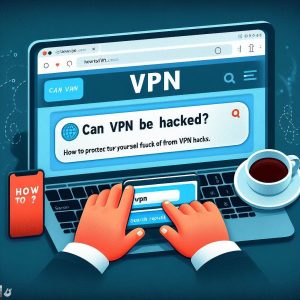
Common Attacks on VPNs
Despite stringent security precautions by VPN services, several sophisticated attack techniques still threaten VPN users including:
Man-In-The-Middle (MITM) Attacks
These attacks infiltrate the communication channel between a user’s device and the VPN servers. Attackers covertly intercept traffic in real-time, allowing not only data access but also the ability to modify or block traffic. Common approaches include:
- Downgrade attacks – Manipulate the encrypted handshake between VPN client and server to force usage of weaker encryption than typically provided.
- Packet injection – Insert malicious data into VPN traffic, which gets mistakenly interpreted as legitimate data by the receiving system.
- SSL hijacking – Exploits vulnerabilities in SSL certificate verification to masquerade as the intended VPN endpoint for a user’s device.
MITM attacks pose serious threats as users may believe their VPN connection retains full security while an attacker silently compromises it.
Phishing Attacks
Deceiving users into surrendering login credentials is a common tactic against VPN consumers. Tactics include:
- Fake VPN provider websites covertly capture user passwords and payment details.
- Phishing emails mimic alerts from VPN providers to capture account data. Links direct to phishing sites.
- Popup login prompts injected into websites compromise credentials entered into the fake VPN login window.
Staying vigilant for subtle signs of fraud within emails, ads or websites can protect against phishing schemes.
Malware Infections
Similarly devious tactics used for typical malware campaigns can also target VPN users specifically:
- Fake VPN app downloads contain Trojans or spyware that compromise data
- Poisoned search rankings promote infected, fraudulent VPN downloads
- Malicious browser extensions masquerade as VPN services to gather browsing data
- Weaponized email attachments install data-stealing implants onto systems
Ensuring VPN apps and software downloads originate purely from trusted sources reduces users’ risks.
DDoS Attacks
There are also infrastructure-level threats to VPN services themselves. A common one is Distributed Denial-of-Service (DDoS) attacks aimed at VPN servers which involve:
- Using botnets of compromised devices to flood servers with junk traffic
- Exploiting Internet protocols like UDP amplification to overwhelm targets
- Leveraging reflection techniques to obscure true attack source
The end result is VPN servers get so overwhelmed that legitimate user connections get denied, resulting in service outages.
How to Protect Yourself from VPN Hacks
Despite the various threats enumerated, there are also clear ways VPN users can protect themselves:
Choosing a Reliable VPN Provider
Evaluating provider security & responsibility:
- Privately audited with no major vulnerabilities detected
- Strict zero logging policies, lacking potential user insights
- Implements strong AES-256 data encryption
- Supports only the most secure VPN protocols
- Vigilance around server, infrastructure security and DDoS resilience
- Responsive updates to address any newfound issues
Scrutinizing such factors during provider selection makes interception significantly more difficult.
Using Strong Passwords
Creating unique, randomized passwords for the VPN account itself further isolates it from any other Internet account whose compromise could put your VPN usage at risk.
Password manager tools facilitate securely generating and storing robust passwords for improved safety.
Enabling Two-Factor Authentication
Expanding account login requirements to include one-time codes from a separate mobile device enhances security against password-based attacks.
Even stolen VPN credentials then have severely limited exploitability against the additional authentication factor required at each new login.
Keeping Software Updated
Desktop VPN clients and mobile apps should have auto-updates enabled to quickly install any security fixes released. Updates prevent exploits for vulnerabilities that arise over time.
Actively checking for updates periodically is wise as well for users lacking auto-update functionality currently. Out-of-date VPN software risks the chance of a newly found exploit which is then leveraged by intruders before patches are available.
Avoiding Public Wi-Fi
Completing sensitive activities like online shopping, banking or accessing proprietary systems is best avoided altogether on public networks even when connected through a VPN.
The risks posed by advanced threats like MITM attacks capable of compromising VPN tunnels highlight why truly sensitive communications are wisely limited to secure private internet connections exclusively.
For more casual browsing activities, keeping the VPN enabled still raises the difficulty of linking online behaviors to personal identity. But users should limit private data access.
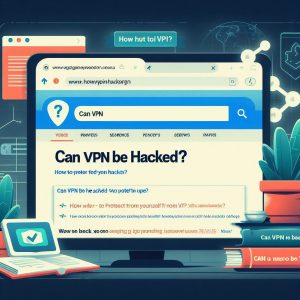
Conclusion
While extremely useful technologies, understanding the potential security vulnerabilities around virtual private networks is imperative for users to remain protected. VPN services greatly improve upon the outright risks of open Wi-Fi networks. However, no solution yet guarantees 100% data security.
Ensuring providers implement up-to-date security protocols and infrastructure hardening are absolute requirements. Meanwhile users also need to leverage strong system-wide protections as well – unique passwords, updated devices and software plus avoidance of directly accessing extremely sensitive accounts on public networks.
Combining prudent steps by both VPN companies and individuals substantially raises the complexity for most attack vectors. Being proactive around identifying newly reported vulnerabilities allows users and businesses to respond quickly and avoid exploited threats. Remaining vigilant to improve security over time is key for reducing VPN attack surface. Addressing risks that do emerge through provider advisories or media reports also guarantees the fastest mitigation against issues before incidents can occur.
Ultimately VPNs will remain extremely beneficial technologies for the enhanced privacy and access controls they facilitate. Through continually optimizing protections – keeping infrastructure secured, software updated and users well educated – VPN services can fulfill their purpose of granting secure remote network access for both individual and commercial needs in the face of near-constant threats from intruders. Combining knowledge with proactive protections ensure VPNs retain trustworthiness as indispensable online privacy tools, keeping sensitive data transmission secured against unauthorized access.
Introduction
Virtual private networks (VPNs) have existed in a legal grey area in China for years, with authorities periodically cracking down on unlicensed VPN operators based in the country and limiting access to overseas VPNs. The introduction of the Cybersecurity Law in 2017 has increased the government’s regulation of cyberspace and raised the possibility that VPN use may be increasingly channeled through state-owned telecom providers.
Legal Provisions
Information concerning the setup and usage of VPN services can be found in various People’s Republic of China (PRC) laws and supplementing documents.
The Telecommunications Regulations of the People’s Republic of China, implemented in 2000, states that without approval by the competent telecommunications authorities, no enterprise may construct or lease special circuits, including virtual private networks (VPNs), to conduct international business activities. This suggests that VPNs are only legal if approved by the proper authorities.
The Cybersecurity Law, which took effect in 2017, includes strict data localization and network security requirements, increasing the government’s overall regulation of cyberspace. Under this law, personal information and other important data collected in China must be stored within the country. Companies that handle this type of data must undergo security assessments and store the data on Chinese servers.
The Cybersecurity Law also restricts companies from using overseas internet connections that bypass China’s firewalls and internet filters. This restriction directly impacts VPN usage, making it more difficult for companies to utilize VPNs to access foreign websites and services blocked in China.

Current Status
Despite periodic crackdowns and blocks of IPs associated with major VPN providers, there is no official ban on using VPNs in China at the individual level. Many VPN companies advertise their ability to bypass China’s Great Firewall and provide access to blocked content.
In January 2021, China’s Ministry of Industry and Information Technology (MIIT) announced a campaign to “clean up and regulate internet access services,” which led to another wave of VPN usage restrictions. Dozens of VPN apps were removed from the Apple App Store in China.
However, some VPNs have been able to adjust quickly to changes in internet restrictions, using new server locations and IP addresses to allow users to continue accessing geo-restricted content and maintain secure connections. This cat-and-mouse game has enabled a segment of tech-savvy internet users in China to keep using VPNs despite the government’s best efforts.
The government has been particularly harsh in regulating VPN use by businesses and organizations, especially foreign companies. Multinational corporations often rely on VPNs to access vital internal systems blocked by the Great Firewall. Police have raided offices and issued warnings for using unauthorized VPNs.
Despite the challenging environment, it is still possible for individuals to connect to a VPN in China, at least intermittently. People regularly use VPNs to access blocked sites and apps for personal communications and entertainment. University students frequently utilize VPNs to get around internet restrictions and conduct research.
Recommendations
For visitors and residents struggling with VPN connectivity issues in China, it is recommended to directly contact customer support for the VPN service. Many providers have experience troubleshooting China-specific problems and can provide the best advice.
Ask if they have servers optimized for use in China or protocols like Shadowsocks and WireGuard that may have better success getting past the filters. The VPN may also be able to provide a dedicated IP address or obfuscated servers to improve reliability.
Be prepared to experiment with multiple protocols and connection options. What works one day might be blocked the next. Consider having accounts with a couple reputable VPN providers to switch between if you experience problems.
Also try using the VPN app from different devices like phones, laptops, and tablets to test stability. Connecting through WiFi networks rather than mobile data can sometimes resolve access issues as well.
If you are visiting China, it is advisable to set up a suitable VPN on all your devices and test connectivity for accessing highly restricted sites like Google, Facebook, WhatsApp prior to traveling. Finding a VPN that provides consistent performance under the Great Firewall can require some pre-planning.
Downloading VPN apps via app stores ahead of your trip is also recommended, as app distribution platforms like the Apple App Store or Google Play Store are blocked without a VPN in China.

Conclusion
While the legal status of VPNs in China remains uncertain, it is still possible for individuals to use VPNs in the country, albeit with some challenges around restricted access and connection stability. Companies especially face harsh crackdowns for operating unauthorized VPNs.
The government continues its attempts to clamp down on VPN usage through technical blocks, restrictions written into law, and intimidation tactics. However, people in China continue accessing VPNs to use blocked internet services and secure their communications. The ongoing game of cat-and-mouse means users must be prepared to troubleshoot connection issues and switch between multiple VPNs options when necessary.
I. Introduction
A VPN (Virtual Private Network) has become an essential internet privacy and security tool for online users around the world. By routing your device’s internet traffic through an encrypted tunnel to a remote server located elsewhere globally, a VPN allows you to browse the web with enhanced anonymity. Your real IP address, location and online activities stay hidden from cybercriminals, government agencies and internet service providers (ISPs) alike.
For accessing online libraries like Z-Library that exist in legal grey areas due to hosting copyrighted books without explicit permissions, using a VPN adds a valuable layer of security. The encryption shields your data from surveillance while the remote server access allows bypassing any geoblocks or access restrictions imposed on the sites. Let’s explore Z-Library itself and optimal techniques for accessing it securely through reputable VPN services.
II. What is Z-Library?
Z-Library refers to a shadow library website that archives and hosts over 30 million academic papers, journals, books and articles spanning all topics imaginable. It aims to facilitate cost-free access to expensive scholarly materials, textbooks and learning content otherwise locked behind paywalls and subscriptions.
Much of Z-Library’s rapidly expanding catalog gets sourced directly from SciHub – another pirate repository of paywalled academic publications obtained without copyright permissions. Users can browse Z-Library’s holdings anonymously but require free registration for accessing enhanced features like requests and downloads.
While immensely helpful for less privileged students and researchers, Z-Library exists in a legal gray zone much like SciHub. By re-hosting proprietary publications without explicit author permissions, it actively skirts copyright laws. Still many users feel its mission of democratizing knowledge outweighs strictly commercial publisher loss concerns. Accessing Z-Library securely through privacy tools offers a prudent path for people needing its resources.
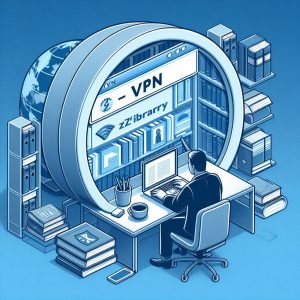
III. Why Do You Need a VPN for Z-Library?
Given Z-Library’s legally dubious operations hosting millions of copyright-infringing texts, various regions around the world frequently impose access blocks against it. Prominent ISPs blacklist associated domain names, preventing direct connectivity. As Z-Library galleries expand relying on often questionable sourcing, usage risks also increase via potential legal actions or surveillance monitoring.
Besides technical obstacles like ISP blocking, accessing shadow libraries also leaves visible digital footprints on your identity through logging of IP addresses that identify users’ geographic locations. Over time, accumulated usage histories create problematic trails visible to hostile agencies.
Running Z-Library queries through anonymizing VPN tunnels solves all the above privacy concerns:
- Encryption prevents snooping on specific titles viewed or downloaded for inspection.
- Routed server connections bypass regional blocks by ISPs or regimes filtering the site.
- Replacing your real IP address with the VPN provider’s IP range hides identifiable information.
So using a VPN when searching through academic repositories like Z-Library represents crucial secure browsing hygiene.
IV. How to Set Up a VPN for Z-Library
Utilizing a VPN for shielding your online movements boils down to just a few simple steps:
- Determine Trustworthy VPN Providers:
Highly regarded services like ExpressVPN, NordVPN and CyberGhost have proven track records securing user data based on criteria like independently audited no-logs policies that prevent activity monitoring.
- Download & Install VPN Apps:
VPN providers supply dedicated apps for all major desktop and mobile platforms like Windows, MacOS, iOS and Android devices to handle encrypted tunneling seamlessly under the hood.
- Create VPN Account:
You’ll need an active VPN subscription to connect using provider-issued credentials. Paid plans enable accessing full-featured servers. Consider affordable long-term subscriptions for routine usage needs.
- Activate Encrypted Connection:
Launch the app and enter login information to enable the encrypted VPN tunnel through the provider’s remote servers, now hiding your IP address from external visibility.
- Verify Online Privacy:
Use browser tools like WebRTC Leak Test to double check your real public IP address gets replaced with the VPN server’s IP, indicating active anonymity protection.
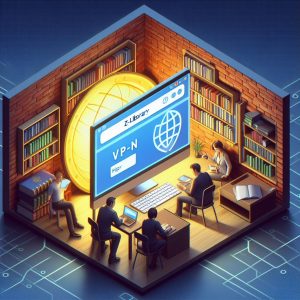
V. Benefits of Using a VPN for Z-Library
Accessing online libraries hosting questionable materials without agreements from a territorially unrestricted and anonymous perspective generates multiple advantages:
1. Bypasses Regional Blocking of Sites
Regions like Australia, India and Indonesia actively censor Z-Library domain access locally. But VPN global servers safely bypass these limitations.
2. Avoids Activity Profiling Risks
Spy agencies flag and monitor users accessing shadow libraries to steer investigations. But VPN encryption blinds them to your browsing destinations and content.
3. Allows Site Functionality Testing
Many scholarly databases like JSTOR now employ sophisticated bot detection. But VPN cloaking allows unfettered access to evaluate site utilities before wider usage.
4. Sustains Offline Local Storage
VPNs permit securely downloading niche papers and books in bulk for offline personal reference instead of relying on continued live access from censored regions.
For academics and researchers requiring access to expensive materials free of cost, Z-Library represents an invaluable asset once initial VPN privacy protections get activated during usage.

VI. Conclusion
Online libraries like Z-Library thriving on donations aim to fulfill aspirations of open access to academic materials without income barriers – but require protective measures given legally ambiguous operations. As censorship and surveillance pervade digital environments world-wide at accelerating rates, merely accessing prohibited sites leaves average users vulnerable unless appropriate tools get adopted.
Routing your internet traffic through reputable VPN services before querying and browsing risky venues like shadow libraries is crucial today to avoid lingering legal troubles or activity monitoring. Leading privacy providers like NordVPN and ExpressVPN offer reliable encryption tunnels paired with secure remote servers designed specifically to bypass regional blocking while preventing data leaks. Savvy internet citizens globally should deploy these VPN protections for sustaining access to ‘virtual shelves’ of content expanding greater than physical bookstores.
So by understanding motivations behind vaults like Z-Library and selecting suitable security solutions that leave minimal digital traces, students anywhere gain opportunities for world-class knowledge sans artificial barriers. Information wants to be free despite profit motives, and VPNs represent the lifeline making that possible.
Introduction
Venezuela faces a dire social, economic and political crisis under the authoritarian rule of President Nicolas Maduro. Amid rampant hyperinflation, poverty, rising crime and hunger, Venezuelans also endure serious threats to their fundamental digital rights. The government imposes extensive internet censorship and surveillance to suppress free speech and restrict access to information. This intensifies hardships for citizens and journalists countering state propaganda narratives.
Under these oppressive conditions, internet privacy tools like virtual private networks (VPNs) provide rare safeguards for Venezuelans. By encrypting web traffic and masking online movements, VPN services empower citizens to bypass state censorship controls and shield their data from prying eyes. Despite expanding internet repression, VPN usage endures as a lifeline for accessing independent journalism and open communication channels banned within Venezuela.
Internet Freedom in Venezuela
Worsening social, economic and political crisis
Venezuela faces an unprecedented multi-faceted crisis, with its economy ravaged by 1 million percent hyperinflation in 2019, critical food and medicine shortages and over 7 million citizens starving under Maduro’s corrupt socialist regime. Over 6 million refugees have fled the country to date. Rampant street crime and violence accompanies this instability, with Venezuela’s murder tally rivaling war zones. Opposition groups attribute 30,000 deaths to Maduro’s Special Action security forces. This meltdown enables Maduro to criminalize protests and dissent by ordinary citizens and free press alike using emergency legislation.
Precarious internet freedom
This authoritarian climate has cultivated one of the worst environments for internet freedom in Latin America. Independent digital rights watchdog Freedom House assigns Venezuela’s internet environment a paltry score of just 26 out of 100 for online civil liberties. Harsh laws like the 2004 Social Responsibility on Radio and Television Act facilitates disproportionate censorship and surveillance of citizens’ digital activities. Government entities like state-owned internet provider CANTV impose arbitrary internet blackouts while covertly conducting mass spying of private communications in collaboration with Chinese telecoms giant ZTE.
Restricted networks
In 2019 and 2020, Venezuela suffered intermittent nation-scale internet blackouts cutting off web access for 85 percent of citizens at times. These represented attempts to frustrate opposition organizing and free communications rather than mere technical outages. Internet throttling also frequently restricts connection speeds during protests to prevent live streaming and coordination online.
Blocked websites
Under Maduro, Venezuela maintains over 250 highly restrictive administrative internet orders enabling widespread URL blocking. Authorities regularly target sites publishing independent news and economic analyses contradictory to official statistics. High traffic global platforms like YouTube, Wikipedia and Periscope underwent mass blocking during 2019 for hosting anti-regime content and protests.
Pro-government commentators
State agencies flood social networks like Twitter, Facebook and Instagram with propaganda content glorifying Maduro and demonizing dissent. They actively exploit platforms’ algorithms to game trending topics and spread manipulated imagery. The use of state-sponsored trolls further silences genuine dialogue online.
Users arrested
Merely criticizing Maduro’s leadership online can prompt severe legal consequences like fines, surveillance and arrest. Prominent civil society group Espacio Público tracked nearly 900 social media arrests since 2014, aided by internet surveillance capabilities acquired from Russia and China that enable expansive user monitoring. At least 100 citizens received prison sentences of up to 5 years for social media dissent under the guise of upholding public order.

Shift to Digital Media
Legacy news outlets closing
Venezuela’s media freedom recently ranked an abysmal 148 out of 180 countries surveyed by Reporters Without Borders. The Maduro regime deliberately hounds critical journalists with specious charges, arrests and office raids. National TV networks and newspapers endured closure or sanctions after probing state corruption or human rights violations. By 2020, over 114 media outlets halted operations owing to withheld licenses, defamation lawsuits and staff detentions. Online-only news sites, blogs and podcasts partially filled this journalism vacuum despite state obstruction of their funding models through censorship.
Independent news sites reporting despite restrictions
Profitable sites like El Pitazo, Runrun and Efecto Cocuyo creatively transitioned to subscription models to sustain salaries and hosting fees needed for honest reporting on decaying living conditions nation-wide, often leveraging VPN tools to safeguard site accessibility. Investigative journalism outfit ArmandoInfo contributed extensively to coverage of multi-billion dollar corruption scandals like the 2018 PDVSA Infrastructure case, spotlighting cronyism under Maduro despite judicial threats.
VE Sin Filtro
Local digital rights group VE Sin Filtro (Without Filter) operates as Venezuela’s firewall monitor, tracking and reporting website blockages in real-time to raise awareness of Maduro’s censorship pattern against critics. The site itself underwent targeted DDoS cyber attacks and censorship through local ISPs – only remaining accessible via VPN connections transmitting user reports. VE Sin Filtro represents embattled civil society groups still fighting erosion of digital rights using the same privacy tools they advocate.
Virtual Private Networks (VPNs)
Definition and explanation
A virtual private network, or VPN, supplies users an encrypted tunnel for internet traffic to flow through before reaching the open web. This protects the confidentiality and integrity of data exchanged across the internet by making it unreadable to hackers, internet service providers (ISPs) or state surveillance attempts. VPN services typically route connections via servers abroad to also bypass geolocation restrictions. Leading consumer VPNs highlight privacy and data security protections to safeguard users.
Types of VPNs
There exist several main implementations of VPN technology:
- Personal VPNs route each individual device or user’s internet activity through encrypted tunnels to shield browsing data and unlock geo-restricted sites. Popular providers like ExpressVPN and CyberGhost supply user-friendly apps for this purpose.
- Remote-access VPNs permit secure remote logins to company servers and networks from external locations to enable confidential access of internal resources and documents during telecommuting.
- Site-to-site VPNs essentially connect entire office locations into the same virtual network spanning physical geography to allow seamless data transfer and communication between global company divisions.
- Mobile VPNs represent customized versions of personal VPN apps calibrated for smartphones and tablets to enhance cellular data protections while on the move using public WiFi hotspots.
Benefits of using VPNs
Virtual private networks provide manifold impactful benefits:
- Encryption protects personal data like passwords and communications content from compromise by cybercriminals sniffing WiFi signals or ISPs monitoring traffic.
- Anonymity features prevent tracking of browsing histories that power annoying targeted advertising and compromise user privacy.
- Changing virtual locations via VPN networks defeats censorship, unblocks websites and allows global citizens to access regionally restricted content.
VPN security features
Robust personal VPN services offer multilayered security protections:
- AES 256-bit military grade encryption prevents decryption of traffic
- Zero-log policies remove usage insights that can get leaked or seized
- Shared IP system makes users harder to individually identify
- Firewall and malware blocking complements native device shields
So alongside core encryption tunneling, leading VPNs incorporate a privacy-minded ecosystem of tools that enhance protections in depth.
VPNs in Venezuela
Use of VPNs to protect privacy and bypass internet restrictions
For besieged Venezuelans enduring collapsing living standards under Maduro’s authoritarian rule, VPN usage provides rare safeguards:
- Encryption preserves privacy from expanding state and ISP surveillance that punishes anti-regime chatter online with arrests.
- Skirting ISP blocks allows accessing banned independent news sites countering Maduro’s propaganda to make informed choices.
- Anonymity features prevent tracing and identification of activists and journalists by the feared SEBIN intelligence agency.
So despite partial VPN website blocking locally, Venezuelans recognize VPNs represent one of the few remaining pillars protecting personal liberties online from erosion by Maduro’s internet polic
Popular VPN providers in Venezuela
Technical organization IPYS Venezuela indicates leading VPN platforms continue functioning reasonably reliably in the country as citizens demand uncensored communications amid turmoil. Global brands ExpressVPN, NordVPN and CyberGhost proved resilient to firewall interference thus far according to recent 2022 tests. All supply obfuscated connectivity protocols to further sneak past blocks. Their zero-log assurances also deter government seizure risks given agencies cannot leak private data never recorded on back-end servers.
Challenges and limitations of using VPNs
Pervasive physical infrastructure failings impose practical hindrances on VPN usage, however. Frequent electricity blackouts averaging 20 hours duration paralyze device charging required for maintaining VPN connections via gadgets. Cell tower vandalism and telecoms network degradation also periodically prevent wireless hotspot connections for remote workers. So Venezuela’s wider socio-economic unraveling exacerbates barriers towards open internet access.
Furthermore, cheaper VPN choices often struggle with reliably bypassing intensified ISP blocks, exposing users to surveillance, while top providers’ subscription costs remain prohibitive for average Venezuelans without international payments access. Still, VPNs supply desperately needed shields against rights violations.
Conclusion
Venezuela’s descent into full-blown humanitarian crisis under Maduro’s dictatorship sees parallel deterioration of civil liberties online. State organs zealously monitor, censor and restrict internet access to suffocate dissent while propagandizing regime narratives. This stranglehold challenges independent journalism exposing oppression.
In response, Venezuelans lean heavily on censorship-evading tools like virtual private networks to reclaim basic rights to freely surf online content, use social platforms safely and transmit communications beyond surveillance. Users treasure VPN encryption as rare safeguards against grave rights violations physical and digital perpetrated by Maduro’s security forces against critics.
With Venezuela’s future outlook appearing increasingly dystopian without political and economic relief, VPN usage endures as a practical stopgap allowing beleaguered citizens to bypass internet interference. Until root cause failings get resolved, Venezuelans will rely on VPN networks as their gateway to external communications and aid lifelines despite attempted state controls.
I. Introduction
A Ukrainian IP address has become vital for Ukrainian citizens both within the country and living abroad during these turbulent times. A Ukrainian IP facilitates access to essential local online content and services that may get restricted by geoblocking against foreign IP addresses.
Equally importantly, a Ukrainian IP address allows citizens to bypass Russian internet censorship controls and access independent news sources that the Kremlin tries blocking. A Virtual Private Network (VPN) represents the most reliable method for Ukrainians worldwide to obtain a secure Ukrainian IP address instantly.
II. How to Get a Ukrainian IP Address
A. Explanation of the role of a VPN in obtaining a Ukrainian IP address
A VPN, or Virtual Private Network, works by encrypting your internet traffic and routing it through remote servers abroad, masking your real location. By connecting to a VPN server located in Ukraine, your device gets assigned a Ukrainian IP address automatically, instead of revealing your foreign IP.
B. Discussion of top VPN providers offering Ukrainian IP addresses
- NordVPN – This Panama-based provider operates over 5,200 servers globally, including multiple locations in Ukraine like Kyiv and Odesa. NordVPN offers reliable Ukrainian IPs using the latest WireGuard protocol for state-of-the-art encryption.
- PrivateVPN – Headquartered in Sweden, PrivateVPN maintains servers in Kiev promising some of the fastest Ukrainian IP allocation. Useful for secure, buffer-free HD streaming. PrivateVPN also accepts crypto payments for enhanced financial privacy.
Selecting reputable providers with large server networks increases availability of Ukrainian IPs. Checking for independent audits of no-logging policies also ensures trustworthy handling of user data via VPN servers.
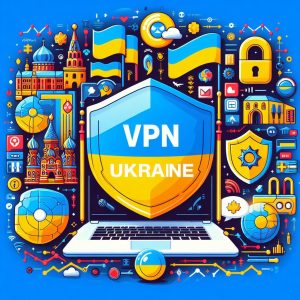
III. Use of VPNs in the Ukraine-Russia Conflict
A. Digital and cyber aspects of the Ukraine-Russia conflict
The Ukraine invasion by Russia brings immense cyber warfare threats to Ukrainian infrastructure, with risks of disabled government databases, compromised nuclear facilities and disabled access to essential online services. Russian state hackers relentlessly try censoring and restricting Ukrainian internet access.
B. Impact of cyberattacks on the use of VPNs and digital technology
Consequently, usage of VPN encryption and decentralized communication tools has skyrocketed in Ukraine as citizens combat rampant misinformation and Russian propaganda online. By acquiring Ukrainian IP addresses from NordVPN or ExpressVPN, Ukrainians foil Kremlin censorship controls.
However, frequent large-scale cyber assaults on Ukrainian networks by Russia sometimes disrupt wider VPN access locally. Still, VPN services supply a vital lifeline channeling independent news and information.
IV. Benefits of a Ukrainian IP Address
A. Access to local content, banking services, and geo-restricted platforms
Besides circumventing Russian firewalls, a Ukrainian IP address provides multiple far-reaching advantages:
- Access Ukraine-only news sites, social media, and streaming platforms no matter where you are globally.
- Use online banking securely without trigging fraud alerts that foreign IPs can cause.
- Experience faster connection speeds from local VPN servers to enhance productivity.
B. Security and privacy benefits of using a VPN
Assigning a Ukrainian IP via VPN fortifies online anonymity protections given heightened Russian state surveillance threats monitoring Ukrainian internet traffic:
- VPN encryption shields users’ browsing data, messages, transactions from Russian spying.
- No-logging VPN policies prevent Ukrainian usage insights falling into Kremlin hands if servers get seized.
- Malware protection features block infections from Russian cyber attacks.
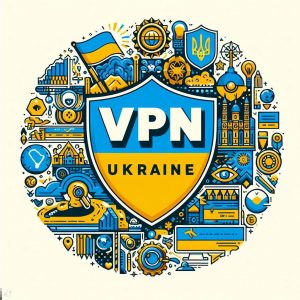
V. Criteria for Selecting the Best VPNs
A. Factors to consider when choosing a VPN for Ukrainian IP
- Location of servers within Ukraine for local IP allocation and fastest connections
- Watertight encryption like AES-256 bit or WireGuard to defeat Russian firewalls
- Independently audited no-logs policies to prevent government data sharing
- Reliable speeds for secure video calls and remote work productivity
- Affordable long-term pricing for prolonged unrest
B. Importance of maintaining servers in Ukraine
The ideal VPNs for Ukrainian IPs maintain extensive server coverage directly inside Ukraine across various cities. This localized server infrastructure raises reliability in acquiring Ukrainian IPs consistently despite severe cyber disruptions. NordVPN and AtlasVPN satisfy this vital criteria.
VI. Risks of Using Free VPNs
A. Discussion of unreliability and potential security risks of free VPN services
While free VPNs appear attractive for cash-strapped Ukrainian citizens, they inflict major security and functionality compromises:
- Strict data caps throttle connection speeds to barely 1-2 Mbps – insufficient for remote video calls.
- Lack of encryption leaves browsing open to Russian cyberattacks.
- Limited server locations outside Ukraine prevent reliable access to IPs.
B. Advantages of reputable VPN companies
Top-tier VPN providers like ExpressVPN and CyberGhost invest heavily in server capacity and encryption strengths catering specifically to Ukrainian requirements:
- Budget prices as low as $2 per month still enable unlimited fast connections.
- Expansive global networks allow resilient server switching to maintain Ukrainian IPs despite outages.
- Custom applications provide extra DNS/firewall security against Russian cyber threats.
So rather than settling for subpar protection from free services, affordable premium VPNs now exist fitting Ukrainian cyber defense needs.
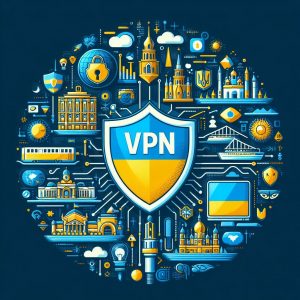
VII. Conclusion
A. Recap of the benefits of using VPNs for Ukrainian IP addresses
Enabling a Ukrainian IP address via VPN platforms has become essential for Ukrainians seeking to bypass Kremlin censorship controls and access independent journalism about the conflict. VPN encryption also supplies additional protection against pervasive Russian state cyber intrusions.
B. Emphasis on selecting a reputable VPN provider
Choosing a premium VPN solution like ExpressVPN or NordVPN with extensive nearby servers in multiple Ukrainian cities should rank as critical. Only reputable providers can maintain service resilience and essential encryption strengths amidst Russian assaults on digital infrastructure and telecoms services in Ukraine. Reliable access to a Ukrainian IP represents a lifeline today.
Introduction
A VPN, or virtual private network, has become an essential online privacy tool for South African internet users facing growing threats from cybercriminals and invasive government surveillance. By routing your internet traffic through an encrypted tunnel to a remote server located abroad, a VPN allows you to browse the web, use apps, and access online services more securely.
The best South Africa VPN services can provide powerful encryption to shield your sensitive personal and financial data from hackers, identity thieves, and other malicious actors online. They also help you bypass geo-restricted websites and access content not normally available in South Africa. This makes them extremely valuable in the modern digital landscape.

Legal Status of VPNs in South Africa
Unlike more authoritarian countries, South Africa’s internet laws and regulations are generally favorable towards the use of VPN services amongst citizens. However, some restrictions still apply that users should remain cognizant of:
- The Regulation of Interception of Communications (RICA) Act requires ISPs to store customer internet traffic data for up to 5 years. This metadata could reveal VPN usage. However, the content of communications remains protected.
- Under the Cybercrimes Act, authorities can order ISPs to release customers’ communications data involving serious criminal investigations. VPN usage could raise suspicion here.
- The Protection of State Information (POSI) Act aims to prevent leaks of classified state information. Claiming VPN usage is “for journalistic purposes” offers some legal leeway if questioned.
To avoid legal headaches, it is advisable to use common sense online and ensure any VPN-enhanced activities like filesharing do not enable serious crimes or threats to national security. Responsible usage poses few issues.
Choosing a Reputable VPN Service Provider
With confidence in South Africa’s general openness to VPN adoption, citizens should critically compare providers to determine the best fit for their privacy, security and functionality needs:
- NordVPN earns top marks for watertight 256-bit AES encryption paired with an independent audit confirming their strict no-logs policy across 5,200+ worldwide servers.
- ExpressVPN also offers ultra-secure OpenVPN connections using RAM servers to prevent activity logging. The 3,000+ global servers ensure reliable access to geo-blocked content.
- Local provider PureVPN merits consideration too thanks to offering split-tunnelling features that allow assigning VPN protection on a per-app basis. This fine-grained control provides added online security.
Checking for criteria like independently audited policies, reliable connection speeds, and localized servers helps find services optimal for South Africa’s unique digital environment.

Best Practices for Using a VPN in South Africa
Once signed up with a suitable VPN provider, South African residents can take further steps to enhance their privacy and security:
- Always install the latest antivirus, firewall and operating system updates to protect against malware and exploits that could bypass VPN shields.
- Refrain from reckless behaviors online that may still enable serious crimes despite using a VPN. Authorities can request subscriber data from VPN providers if legally compelled.
- Enable the VPN app’s kill switch feature, which severs internet access if the VPN connection drops unexpectedly, preventing data leaks. Similarly, activating leak protection like WebRTC blocking provides additional failsafe security.
Getting a South African IP Address with a VPN
One of the main benefits of using a premium VPN service is obtaining a South African IP address while located anywhere globally. Having a local IP address allows you to:
- Access South African news sites and streaming services like Showmax that block foreign IP addresses through geo-restrictions.
- Avoid international transaction fees when making payments online or reduce instances of being blocked by banks.
- Experience faster web browsing and download speeds by connecting to local VPN servers based in Johannesburg or Cape Town.
Look for VPN providers like NordVPN and ExpressVPN that offer reliable servers based right within South Africa to assign you an authentic local IP address when connected.

Benefits of Using a VPN in South Africa
In summary, South African residents stand to gain multiple advantages from deploying a suitable VPN solution:
- Reduce exposure to growing cybercrime threats in South Africa, including mobile banking fraud and ransomware attacks that a VPN helps nullify.
- Avoid basic metadata collection demands imposed on ISPs using a zero-logs VPN, and reduce visibility to more intrusive government surveillance under legal warrants.
- Unblock geo-restricted streaming content from South African sites like DStv Now when traveling overseas, in addition to accessing international media libraries.
A premium South Africa VPN service is a vital utility for taking control over your digital privacy and personal data security as online privacy risks accelerate.
Conclusion
While South African law takes a generally favorable position regarding personal VPN usage, individuals must still choose solutions carefully and use them responsibly to maximize legal protections. Selecting renowned VPN providers with localized servers and watertight encryption enables you to safely enhance online privacy without attracting unnecessary scrutiny from telecoms regulators or law enforcement.
Following best practices around proactive system-hardening and prudent online behavior also helps sustain VPN protection strengths for peace of mind. With hacking and spying representing primary modern threats online, South Africans should value VPN services as indispensable tools that combat encroaching digital liberties infringement.
I. Introduction
A VPN, or Virtual Private Network, is an essential online privacy and security tool for internet users in Singapore. A VPN encrypts all internet traffic between your devices and masks your real IP address by funneling connections through remote servers abroad. This allows Singapore residents to bypass geoblocks, enhance online privacy, and secure sensitive data.
With rampant cybercrime and stringent internet controls imposed by authorities, utilizing a reliable Singapore VPN solution should be considered indispensable today. VPN usage brings multiple critical advantages.
II. Best VPNs for Singapore
With many VPN services operating internationally, it is important to select one catering reliably to conditions in Singapore. The top recommendations are:
A. NordVPN
- Based in Panama, NordVPN offers robust encryption via the latest WireGuard protocol. This prevents hacking of sensitive data. NordVPN has over 5,200 worldwide servers, including dedicated Singapore VPN servers, that provide superfast streaming speeds.
- The strict no-logs policy enforced across all NordVPN servers gives users enhanced privacy online. The company cannot share users’ personal data since none exists. Alongside malware and tracker blocking features, NordVPN represents the pinnacle of online security in Singapore.
B. ExpressVPN
- Operated by a trustworthy British Virgin Islands company, ExpressVPN delivers award-winning VPN service backed by verified no-logging policies. AES-256 encryption powered by 100% RAM servers ensures reliable privacy for activities like online banking in Singapore.
- With unlimited bandwidth and 3,000+ global servers, ExpressVPN reliably unblocks geo-restricted content from streaming platforms like Netflix and BBC iPlayer. Local Singapore servers maintain blazing fast speeds for HD and 4K streaming. The best all-round Singapore VPN solution.
C. Surfshark
- This wallet-friendly VPN provider supplies an array of premium features for a fraction of the price of rivals. Based in the British Virgin Islands, Surfshark offers formidable security courtesy of AES-256 encryption, a private DNS, and a kill switch to prevent data leaks.
- One Surfshark subscription allows unlimited simultaneous connections. So users can protect all devices in their household for a low monthly cost. Connections remain blazing fast for streaming and torrenting thanks to a 1040+ server network. Excellent value choice for multiple gadgets.

III. Legality and Necessity of VPN in Singapore
A. Legality of VPN in Singapore
- Unlike neighboring countries like China, VPN usage among individuals remains perfectly legal in Singapore. There are no specific laws prohibiting or restricting personal VPN adoption. However, authorities discourage using VPNs to commit actual crimes.
- Singapore-based businesses must comply with geographic restrictions when licensing digital media content under the Copyright Act. On that commercial front, deploying VPNs to bypass licensing geo-blocks contravenes this Act.
For regular citizens, VPN adoption stays lawful as no data protection or national security factors occur. But free usage rights should not enable reckless activities either.
B. Necessity of VPN in Singapore
- Despite staying fully legal, VPN usage in Singapore is increasingly necessary because of gradual tightening of internet controls by the government under auspices of fighting “fake news” and protecting national harmony.
- VPN encryption also provides crucial protection on public WiFi hotspots prone to hacking by cybercriminals. Local cafes and malls typically offer no encryption on open hotspots. Deploying VPN protection when accessing banking apps or emails out in public represents vital precaution.
So while average Singaporeans face no imminent need for a VPN yet, subscribing to a trusted provider futureproofs online privacy and security as digital policies evolve.

IV. How to Get a Singapore VPN for Free
A. Options for accessing restricted content in Singapore
Many assume a VPN costs money, but Singapore users have options for testing VPN capabilities before paying. Leading paid providers like ExpressVPN and NordVPN offer limited-period free trial subscriptions, typically for 1 week up to 1 month. Signing up enables experiencing full VPN features without initially handing over your payment details.
B. Considerations for choosing a VPN
- Unlimited free VPN solutions sound appealing but cannot realistically match premium providers due to running costs. Strict data caps get imposed on free users, translating to slow speeds and connection dropouts. Free users also receive no customer support.
- Savvy internet citizens may enable VPN connections through services like the Tor browser or Opera web browser with built-in functionality. But these tools focus on anonymity over usability, providing very slow speeds insufficient for streaming media.
Paid solutions like Surfshark offer much better value thanks to providing unlimited bandwidth and encrypted connections across unlimited devices for around $2 per month.
V. Conclusion
A. Summary of the benefits of using a VPN in Singapore
Despite VPNs holding unambiguous legal status in Singapore currently, all residents should consider utilizing a premium VPN for multiple important reasons:
- As government surveillance and censorship gradually spread, VPN encryption represents the only guaranteed digital self-defense against potential future overreach. NordVPN or Surfshark shields online movements.
- VPN adoption while on public WiFi networks is equally essential to guard against rampant hacking, identity theft and malware threats when away from home connections.

B. Recommendation for the best VPNs based on specific needs
Weighing up vital criteria like server proximity, connection speeds and number of simultaneous connections determines the ideal VPN recommendations for specific individuals:
- NordVPN offers unbeatable streaming speeds from local servers alongside recent WireGuard protocol adoption for state-of-the-art encryption. Ideal for media enthusiasts and regular travelers.
- Privacy-conscious banking users or remote workers should leverage ExpressVPN for hardcore no-logging policies shielding commercial activities combined with Dynamic Split Tunneling to customize protection.
- Cost-conscious households with many gadgets benefit enormously from Surfshark’s unlimited multi-device connections for a single low monthly price. Futureproof the whole family affordably.
I. Introduction
A VPN, or Virtual Private Network, is an essential tool for securing your online privacy and accessing blocked content in Saudi Arabia. VPNs route your traffic through an encrypted tunnel to mask your browsing activities and bypass internet censorship measures imposed in the country.
Saudi Arabia implements some of the strictest internet controls globally. Authorities block access to hundreds of thousands of websites related to human rights issues, political reform, sexual content, tools for circumventing censorship, and much more. Using a VPN represents the only guaranteed way for residents to bypass these restrictions.
II. Legal Status of VPNs in Saudi Arabia
A. Overview of the legal implications and risks of using VPNs in Saudi Arabia
Saudi Arabia has no specific legislation outlining the legal status of VPN usage within its borders. However, VPN services undoubtedly conflict with the country’s strict internet censorship and surveillance policies. This creates ambiguity surrounding the legality of VPN adoption.
In practice, the Saudi government occasionally blocks or impedes access to major VPN platforms, indicating they oppose their usage in bypassing censorship technical controls. Individuals need to weigh up the inherent risks.
B. Discussion of the line between legality and illegality
In essence, VPN usage in Saudi Arabia inhabits a gray area between ostensible legality and outright illegality. The technology itself remains legal for local residents to download and utilize. But authorities see censorship circumvention as defiant and unacceptable, despite no official laws declaring VPN usage a prosecutable offense.
It becomes illegal once a VPN is deployed for unambiguously serious crimes like financial fraud or distributing extremist content online.

C. Consequences of bypassing internet censorship
Typically, regular citizens face no criminal charges or legal punishment for utilizing VPN services to visit blocked websites or social media. However, the government sometimes makes high-profile examples of activists and dissidents by handing down harsh sentences for online dissent enabled by VPN access.
Citizens must weigh up the personal risks of accessing prohibited online content against the inevitability of discovery by the authorities. Even strict internet censorship cannot eliminate VPN usage in Saudi Arabia.
III. Understanding the Legality of VPN Use
A. Criteria for lawful usage of VPNs in Saudi Arabia
As no Saudi laws specifically address VPN legality, the closest indicators revolve around criteria for what constitutes acceptable internet usage according to state regulators. As long as citizens’ online activities meet these loose standards, VPN adoption stays reasonably safe:
- Accessing mundane sites related to entertainment, travel, sports etc. normally raises no red flags for using a censorship-evading VPN.
- Utilizing VPN encryption as a primary means to enhance online privacy and data security also qualifies as broadly lawful usage that creates minimal risks.
Essentially, VPN usage triggers fewer concerns if core online activities demonstrate no overt political or religious dissent.
B. Implications of using a VPN in the country
Due to the prevalent culture of self-censorship, most ordinary Saudi VPN users simply desire access to regular social media, global news sources and entertainment. Despite the implicit dangers, authorities reserve punishment for high-profile activists blatantly engaging international media.
For regular citizens, the core implications of VPN usage revolve around improved access to information and stronger data privacy from ISPs or hackers – both positive outcomes.
IV. Best VPNs for Saudi Arabia
Selecting a suitable VPN for reliable censorship circumvention in Saudi Arabia depends on critical factors like local server availability and connection speeds. The top recommendations currently include:
- NordVPN – This Panama-based provider has regional servers in the UAE and other nearby countries able to reliably unblock Saudi sites. NordVPN offers enhanced online privacy via the WireGuard protocol and dedicated IP availability.
- ExpressVPN – With a sizable network of over 3,000 global servers, ExpressVPN consistently defeats Middle East geo-blocks and censorship thanks to high-speed local servers. Advanced leak protection ensures anonymized browsing.
- Surfshark – Although lacking local Saudi servers, this British Virgin Islands-based VPN utilizes powerful AES-256 encryption and obfuscated tunneling to bypass firewalls. Surfshark also provides unlimited multi-device connections.
- Private Internet Access (PIA) – PIA possesses proven unblocking abilities backed by 10Gbit network capacity across 78 countries. The VPN app displays server load and ping times for finding the fastest Saudi connections. As a privacy-first provider, PIA accepts crypto payments.
The top Saudi Arabia VPNs emphasize robust encryption like AES-256 or WireGuard paired withlocalized servers for reliable speeds. Checking for independent third-party audits provides further reassurance regarding no-logging policies.
V. Risks and Considerations
A. Government restrictions on VPN providers’ websites and servers
Despite allowing basic VPN access, Saudi authorities occasionally block leading VPN provider websites to frustrate comparisons and subscriptions. Certain foreign VPN server IP ranges also appear on blacklists, obstructing connections. These restrictions tend to appear sporadically rather than permanently.
B. Risks associated with using VPNs for illegal activities
As mentioned earlier, authorities mainly prosecute VPN usage when explicitly linked to serious breaches of the law online, such as illicit file-sharing, financial crime or the spread of terrorist content. However, even political dissent and unauthorized access to news outlets could prompt surveillance or legal trouble in severe cases.
C. Importance of staying informed about the current legislation
Due to the uncertain legal landscape for VPN adoption in Saudi Arabia, citizens must stay vigilant regarding new laws or decree changes that could reclassify VPN use as an outright illegal activity – as has occurred in neighboring countries like the UAE. Keeping abreast of tech regulations remains crucial.

VI. Conclusion
A. Summary of the legal status and practical considerations of using VPNs in Saudi Arabia
In summary, no Saudi laws expressly prohibit personal VPN usage, but authorities discourage circumventing internet filters without proper justification. The onus falls upon individual citizens to avoid overt activities that may be construed as unlawful based on accessing prohibited content. As long as online actions align with local norms, VPN usage itself presents reasonable privacy benefits for most.
B. Recommendations for individuals seeking to use VPNs in Saudi Arabia
For Saudi residents keen to deploy VPN protections despite the hazy legality status, the safest approach involves using reputable VPN apps purely for enhancing online privacy, securing sensitive connections, and accessing regular entertainment or social media blocked locally. Avoiding political activities reduces risk.
Selecting overseas VPN providers with nearby regional servers and consistent unblocking success represents another vital step. Checking for transparent ownership, independently audited policies, and reliable customer support may indicate trustworthy VPN services.
By responsibly adopting leading privacy solutions, Saudi citizens can unlock the internet’s true potential despite widespread restrictions. Combining informed choices with respect for local rules enables safe VPN usage.
I. Introduction
A VPN, or Virtual Private Network, is an encrypted tunnel between your device and a remote server that allows you to browse the internet anonymously and securely. When connected to a VPN, your internet traffic passes through an encrypted tunnel before accessing the wider internet. This prevents hackers, internet service providers (ISPs), and even government agencies from tracking your online activities or accessing sensitive personal information.
Using a VPN is extremely important in Romania because it protects against growing threats to privacy and security online. The Romanian government has expanded its surveillance capabilities in recent years, increasing the risks to citizens’ personal data. Meanwhile, cybercriminals also target internet users in Romania with various hacking and malware campaigns. Activating a VPN hides your IP address and online movements from all these dangers.

II. Types of VPNs
There are a few main types of VPN protocols, each with their own advantages.
A. OpenVPN
- OpenVPN is an open-source VPN protocol that uses highly secure 256-bit encryption. It is compatible with most modern devices and operating systems.
- The OpenVPN protocol supports both TCP and UDP transfer, providing reliable, high-speed connections on most networks. This makes it ideal for HD video streaming and torrenting.
B. WireGuard
- WireGuard is a new VPN protocol focused on ease of use, speed, and scalability across devices. It uses state-of-the-art cryptography and authentication methods for ironclad security.
- With lightweight code and simplified connections, WireGuard integrates seamlessly across Windows, MacOS, iOS, Android, and Linux platforms. Users can expect extremely fast speeds when using WireGuard.
C. Outline VPN
- Outline VPN operates an entirely distributed network of servers designed to preserve privacy. This makes it very difficult for adversaries to identify and block Outline’s VPN connections.
- As it runs on a global network of volunteer servers, Outline VPN provides users in repressive regimes with covert, uncensored internet access. The distributed network adds an extra layer of privacy.
III. Best VPNs for Romania
To bypass all types of cybersecurity threats, Romanians need a premium VPN solution. The top recommendations are:
A. ExpressVPN
- ExpressVPN has a massive server network spanning 94 countries. Romanian users get to choose from over 160 VPN servers located in nearby European countries.
- Along with top speeds for video streaming, ExpressVPN runs a zero-knowledge, no-logs policy on all servers. Their 256-bit encryption ensures online activities like banking and working remotely stay private. Users can try ExpressVPN risk-free with a 30-day money-back guarantee.
- Using industry-standard OpenVPN connections paired with strong encryption, ExpressVPN offers watertight security for Romanian internet users. The encrypted tunnel technology shields them from hacker intrusions, malware attacks and government surveillance.
B. UrbanVPN
- Based in Romania itself, UrbanVPN was created directly in response to expanding state-sponsored surveillance regimes in the region. It combines 256-bit AES encryption with perfect-forward secrecy for unmatched VPN security in Romania.
- UrbanVPN implements a strict zero-logs policy on all servers in Romania and nearby countries like Hungary and Bulgaria. No user activity data is monitored or stored at any point, preventing tracing.
- By masking Romanian IP addresses, UrbanVPN reliably bypasses geo-restrictions to open access to censored content. Users can easily stream sporting events, overseas media libraries and other blocked entertainment services.

IV. Free VPN Services in Romania
A. Overview of free VPNs
Free VPN services remain very popular in Romania for the obvious reason that they do not incur any subscription fees. Unfortunately, most free Romania VPNs have serious shortcomings when it comes to online privacy.
B. Importance of reliable VPN for privacy and security
Without a paid premium VPN, Romanians cannot rely on robust security features like military-grade encryption or guaranteed zero-logging policies. Major gaps in anonymity protections put sensitive activities like online banking at risk when using free VPNs.
C. Access to local services and content
Only paid Romania VPN providers like ExpressVPN and UrbanVPN supply 100% unrestricted access to locally geo-blocked content and sites blocked by ISPs. Free VPNs often fail to bypass these restrictions.

V. Conclusion
A. Summary of the importance of VPN in Romania
In an environment of expanding state surveillance and cybercrime threats, using a VPN represents a vital online self-defense tool for all Romanians. The most reliable VPNs shield users’ personal information via bank-level 256-bit encryption while defeating censorship technologies employed in Romania.
B. Recommendations for VPN services
To guarantee complete online privacy from cybercriminals and government monitoring alike, Romanian internet users should always deploy premium VPNs like ExpressVPN or UrbanVPN. Both fulfill essential criteria such as extensive nearby VPN servers, verified no-logs policies, and advanced encrypted tunnel technologies.
C. Emphasis on privacy and security features
When evaluating Romania VPN options, users should prioritize core privacy protections like encrypted tunnel connections, zero-logging guarantees and Perfect Forward Secrecy support. Checking factors like server proximity, connection speeds and platform support is also highly advisable before subscribing. But robust encryption paired with an independently audited privacy policy remains the foundation.
By leveraging industry-leading VPN services vetted for Romanian conditions, citizens can reclaim their online privacy in an increasingly intrusive digital landscape. The right VPN solution empowers Romanians to access global internet content and engage in sensitive activities like political organizing with total confidentiality.

























